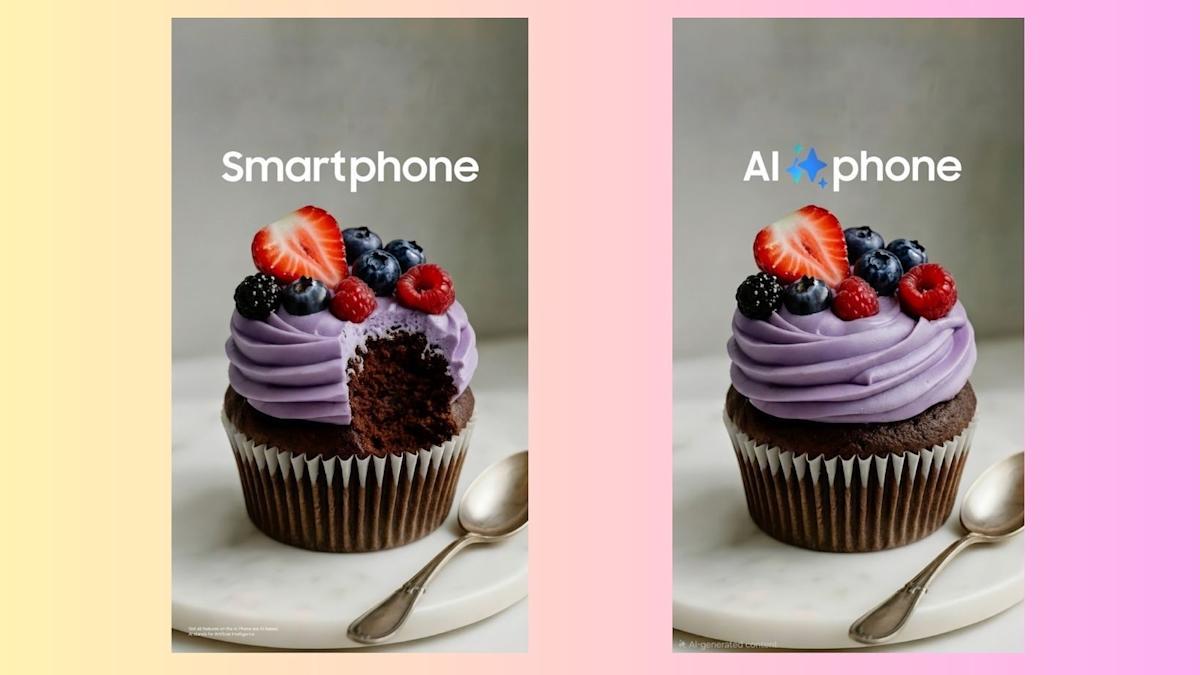OpenAI's Foray into AI Music Generation: Innovation Meets Controversy
11 Sources
11 Sources
[1]
Tired of Sora? OpenAI Could Be Launching AI Music-Making Tool Soon
Based in London, Will is passionate about the intersection of tech and human lives, with bylines in BBC News, Vice, and more. Don't miss out on our latest stories. Add PCMag as a preferred source on Google. If you've been on the internet recently, you've probably seen more than enough bizarre Sora-generated clips clogging up your newsfeed. Now, if reports are true, even more OpenAI-generated content could soon occupy a near-unavoidable place in what you consume online. ChatGPT-maker OpenAI is reportedly working on a generative AI music creation tool, collaborating with students from New York's prestigious Juilliard School on the project. According to The Information, which leaked the news, it's unknown whether the project will be a standalone tool or integrated with another OpenAI product like video generator Sora or ChatGPT. Details were sparse about the tool's capabilities, but The Information says it could add music to pre-existing videos, such as creating a soundtrack for a short clip or an instrumental for an existing vocal track. OpenAI isn't a total newcomer to the music game. It actually released a now-discontinued music generation tool, Jukebox, in 2020, allowing users to generate AI music from preset genres like reggae and blues. Many in the music industry might not be too pleased about the AI giant's entry into the market. Since last year, there's been a flood of AI-generated content hitting streaming services like Spotify. Some AI bands, such as The Velvet Sundown, have managed to dupe unsuspecting listeners into believing they're real, racking up millions of views on sites like YouTube in the process. A lyrically questionable parody song created with generative AI tool Udio even reached number three on Spotify's viral song charts earlier this year. Some figures within the music industry have already spoken out about how AI giants are failing to compensate creators properly, with music legend Paul McCartney urging governments to legislate to ensure human musicians get their due. Meanwhile, fraudsters have used AI music generators to con platforms like Spotify out of streaming revenue. AI music-composition tools that have already hit the market, such as Suno and Udio, are both facing a lawsuit from the Record Industry Association of America (RIAA) over alleged copyright infringements. OpenAI has yet to officially comment on the reports. Disclosure: Ziff Davis, PCMag's parent company, filed a lawsuit against OpenAI in April 2025, alleging it infringed Ziff Davis copyrights in training and operating its AI systems.
[2]
OpenAI is reportedly working on an AI music-generation tool
According to a report from The Information, OpenAI is interested in developing a tool that could generate music from text and audio prompts, and has been working with students from The Juilliard School to help with creating training data. The company envisions something that could be used to generate guitar accompaniment for a vocal track, for example, or to add music to videos, sources with knowledge of the project told the publication. There's no word on how far into these efforts OpenAI is. According to one source that spoke to The Information, OpenAI enlisted the Juilliard students to annotate music scores, which could be used to train the AI. It wouldn't be the first time the company has explored music-generating AI, and it's something we're seeing more and more of elsewhere with other startups, like Suno and ElevenLabs, launching their own versions. AI spam is already cluttering up streaming platforms and, lest we forget, there was the whole The Velvet Sundown debacle. It's only the beginning.
[3]
OpenAI is reportedly working on an AI music generator after Atlas -- here's why I think that's a bad idea
OpenAI is making a move that, on paper, seems obvious. After creating chatbots, image and video generators, and even its own web browser, the company is now allegedly moving on to a music generator. That is according to a report from The Information. The report states that an insider has said OpenAI is taking steps toward this, working with some students from the Juilliard School to annotate music scores, along with other steps to make a music generator. While OpenAI is already a leader in the world of AI, this would be a big step for the company, moving into a field far less crowded than that of chatbots and image generators. According to The Information, OpenAI has privately discussed generating music with text and audio prompts. While it isn't clear if this would be incorporated into the company's video generation tool Sora 2, this could put OpenAI into a unique position of being the first AI company to offer AI audio, video, and music all in one place. A recent report, also from The Information, showed that one of the biggest names in AI music generation, Suno, nearly quadrupled its annual earnings to $150 million. In other words, there is a lot of money in this area. However, it also has the potential to be a legal nightmare for OpenAI. OpenAI has faced criticism on multiple occasions for the rolling out of its products. Its launch of image 4o generation included viral trends of popular artists' work, and its more recent Sora 2 reveal involved offensive recreations of famous celebrities, and legal threats from actors and film companies. These issues have come from the company's approach to its tools. Some companies, like Google's Gemini or Anthropic, have stood firmly on the safer side of AI. There are plenty of safeguards and, in general, an avoidance of anything that could cause controversy. OpenAI believes that its users should be given a good amount of control over its tools. This was seen with a recent announcement from Sam Altman, CEO of OpenAI, where he declared plans for an age-gating system, which would allow for 18+ content from ChatGPT, as well as a re-thinking of mental health safeguards to make ChatGPT more customisable. This kind of approach, if applied to music generation, could land OpenAI in more hot water. Both Suno and Udio, two of the biggest names in AI music generation, were sued for copyright infringement last year. And then, just a few months ago, Suno faced further accusations of ripping songs from YouTube to power its generator. For an OpenAI music generator to be successful, it will need to take the safest route possible, bringing in major record labels and artists to help create a generator that is completely above board. Considering the sway that OpenAI has, this shouldn't be a problem. It has pulled in major names in the past, collaborating with the likes of Spotify, Zillow, and Booking.com in recent collaborations, as well as partnering with publishing companies (including Future, the publisher of Tom's Guide) to help train its models. However, even with the support of the industry, music copyright can be murky territory. Music isn't always clear-cut, and most attempts at major AI music generators have been met with quick controversy. Maybe OpenAI will be the first to nail the design, but I have my doubts that it will be smooth sailing.
[4]
OpenAI is reportedly working on a 'Sora for music' - and a battle with record labels could follow
The project could set up a rivalry with the likes of Suno and Udio, as well as legal battles with music labels and artists OpenAI, the company behind AI tools including the Sora 2 video generator, is reportedly tuning up a new AI tool that will create music based on text and audio prompts. According to a report from The Information, OpenAI is working with students from The Juilliard School to help annotate music scores to help build and train the musical model, though the school itself has stated that it's not involved with the project. Should the unnamed and unconfirmed OpenAI project come to fruition, it would allow users to use words or a brief snippet of sound to create new instrumental accompaniments, such as a guitar track, to pair with a vocal recording, or to produce background music tailored to a specific mood, tempo, or visual. OpenAI has experimented with AI music models before. The company created MuseNet in 2019, which could produce music matching different styles, but it was limited to tinny MIDI files. Jukebox, which appeared in 2020, produced full vocal tracks to go with the music it wrote, but it was fairly primitive compared to more recent endeavors by Suno and other AI music developers. What OpenAI seems to be working on now would go well beyond those early forays and be more like what OpenAI's new Sora 2 model and the Sora app represent for AI-generated videos. The supposed inclusion of Juilliard students in score annotation is an interesting touch, and suggests that OpenAI recognizes how, while it's not unusual for large language models to train on massive unstructured datasets, musical structure is notoriously difficult to teach that way. Unlike text, where you can scrape billions of examples, music requires an understanding of harmony, rhythm, instrumentation, and timing - not just what sounds good, but why. The students could be much better at teaching the AI to 'read' the music. OpenAI's music project seems like it would put OpenAI in direct competition with tools like Suno, Udio, Google's Music Sandbox, and other AI music tools. There's been a lot of recent interest in such platforms as Suno, and others have lept ahead in sophistication. But that improvement is paired with lots of messiness. Streaming platforms are already being swamped with AI-generated content, only some of which is labeled appropriately. Sometimes, those AI tracks are advertised as having been made by real people. Universal Music Group and Warner Music Group have already filed lawsuits against Suno and Udio over copyright theft. OpenAI's entry into the space only makes the stakes higher, especially since OpenAI has its own legal baggage in the form of multiple ongoing disputes over the use of copyrighted content in model training. If it turns out this new music model was trained in part on commercial recordings, that could be another powder keg waiting to go off. Nonetheless, the AI-generated music economy is growing faster than regulators and copyright owners can track. The people using these tools are hurtling toward a moment when half the music online might be AI-generated, but no one agrees who owns what. And that's why OpenAI's move matters. It's a bet that music, like text and images, can be made flexible and programmable. It's a bet that users will want, and expect, to make music the same way they make Instagram filters or TikTok captions. This doesn't necessarily mean the end of human-made music, but it does mean we'll need to decide just how valuable human-made music is to us.
[5]
OpenAI's next move: making music and sparking creative mayhem
OpenAI's headed into the music game. Time to cue billions of songs, lawsuits, and the next chapter in creator vs. machine. What's happened? As per an exclusive report by The Information, OpenAI has quietly begun work on an AI model that can generate music, taking its next big leap beyond text and video. The company is reportedly training its systems using annotated music data from Juilliard students, which is a strong hint that it's chasing quality and creative precision rather than simple generative output. The move positions OpenAI to rival AI-music pioneers like Suno and Udio, even as those startups face major copyright lawsuits from the music industry. Internal discussions suggest the AI could create music using both text and audio prompts, similar to how its Sora tool creates videos from text. The project aims to support multiple use cases, from ad jingles and video background scores to full-length compositions, and will possibly be integrated into ChatGPT or Sora. This follows OpenAI's previous, now-retired experiments in music AI: MuseNet (2019) and Jukebox (2020), which were precursors to today's large multimodal models. Why this is important: This isn't just another feature, but the next battleground between creators and machines. By diving into music generation, OpenAI isn't just aiming to stay ahead of rivals, but it's also challenging who owns creativity and how we will consume it. Creators vs. AI: Start-ups like Suno are already facing lawsuits from record labels, claiming models were trained on copyrighted songs. OpenAI's entry puts the big guns in the ring. Service-ecosystem play: OpenAI has over 800 million ChatGPT users; adding music means more reasons to stay in its ecosystem, and more hooks for monetisation. Legal and ethical pivot: With Sora's deepfake controversy showing how far the guardrails still have to go, OpenAI's music ambition will raise fresh questions about licensing, consent, and revenue-sharing. Why should I care? AI-generated music might sound like a novelty today, but it's quietly redefining how creative industries operate. From the way ads are made to how indie musicians record demos, tools like this could reshape workflows, royalties, and even what it means to "make" music. But as we've seen with Sora's deepfake controversy, power without permission is risky, and the same playbook could repeat here if guardrails don't keep up. If OpenAI's music tool works as intended, anyone could compose soundtracks or jingles without needing expensive software or studio time. For artists and producers, it could become both a threat and a tool by offering faster creativity but also raising fears about AI "copying" signature styles. Consumers may get richer, AI-personalized audio in videos, games, and ads, but also face murky copyright lines and authenticity concerns. Okay, so what's next? One can expect OpenAI to push an announcement in late 2026 or 2027 outlining its music-generation tool, potentially integrated into ChatGPT or the Sora ecosystem. However, it won't be smooth. In fact, one of the first things to watch is whether it secures licensing deals with major labels or whether it ends up in court alongside the likes of Suno. Simultaneously, the early backlash from Sora's deepfakes illustrates that OpenAI's guardrails are lagging behind its ambitions. As reported by Reuters, creator agencies like Creative Artists Agency are already warning the company about risk and rights. Safe to say, the beat won't drop cleanly until the legal chaos and creator fury settle.
[6]
OpenAI is reportedly developing a tool to generate music
OpenAI is reportedly working on an artificial intelligence (AI) music tool. A report from The Informationsaid that the company is working with The Juilliard School in the United States to come up with a tool that can generate music using text and audio prompts. Students at the school are reportedly annotating musical scores so that OpenAI can create a database to train its eventual music tool. Euronews Next has reached out to both OpenAI and the Juilliard School for comment but did not receive immediate replies. This wouldn't be the first time that OpenAI launched a music application. In 2019, a few years before the explosive launch of ChatGPT, the company launched MuseNet, a "neural network" that could create 4-minute compositions with 10 different instruments. A sample released by the company showed that MuseNet was able to re-compose Wolfgang Mozart's Rondo Alla Turca in Frederic Chopin's style. OpenAI followed MuseNet with Jukebox in 2020, a "neural net" that generated music and "rudimentary singing" in various genres of genre, artist and lyric data. The announcement from OpenAI also comes at a time when other tech companies are launching their own music tools. Earlier this month, Spotify launcheda collaboration with major American music groups Sony, Universal, and Warner to develop "responsible AI products". Spotify already uses some AI to create custom playlists like the "daylist" and the AI DJ featurethat personalises a listening session by suggesting related songs to those a user has already listened to. The platform already hosts some AI-generated music. AI start-ups Suno and ElevenLabs also have AI-generated music platforms and work with AI-generated music. However, the music world has raised its copyright concerns. European music industry groups, including the European Composer and Songwriter Alliance (ECSA) and the European Grouping of Societies of Authors and Composers (GESAC), previously told Euronews Next that the EU AI Act, passed in 2024, fails to protect creators whose works are used to train generative AI models. Without a clear way to opt out or get paid when tech companies use their music, books, films, and other art to train their AI models, experts said their work is continually at risk. Suno is facing alawsuitin the United States where the Recording Industry Association of America (RIAA) claims the company pirated songs from their clients off YouTube to train its generative AI models. Universal Music Group is also pursuing a copyright lawsuit against AI company Anthropic.
[7]
OpenAI is Reportedly Developing a Music Tool. Here's How It Could Enhance Your Marketing Strategy.
OpenAI is reportedly developing a generative music tool. While unclear when the product would become available, it would allow users to create music for videos or vocal tracks based on text and audio prompts, according to a report in The Information. For founders, marketers, and ad pros, this could mean creating demos of a catchy jingles or moody soundtrack to reflect the voice and tone of their brand in minutes. Think, the next "I'm Lovin' It" or "Nationwide is on your side." One of The Information's sources says a group of students at The Juilliard School is helping annotate scores to train the AI model. But training has been a point of contention in AI music. In June of 2024, some of the largest record labels in the world, including Warner Music Group Corp. and Universal Music Group NV sued Suno AI and Uncharted Labs Inc., alleging that the companies unlawfully trained their generative AI on copyrighted music. The Recording Industry Association of America, representing the labels, added another complaint to the lawsuit in September. It claimed Suno used stream ripping, a version of music piracy, to download the copyrighted recordings from Youtube.
[8]
OpenAI May Soon Let You Create Music From Text, Just Like Suno
Suno has reportedly quadrupled its recurring annual revenue to $150M OpenAI is reportedly working on an artificial intelligence (AI)-generated music tool. According to the report, the San Francisco-based AI giant is now planning to enter the AI music segment after recently releasing its AI browser. The tool is said to work with both text and audio prompts and can generate instrumental music. With the purported move, the company will now compete with platforms such as Suno, Udio, and Beatoven.ai. It is not clear when OpenAI will go public with this tool, and whether it will be available to all users. OpenAI to Reportedly Enter the AI-Generated Music Space According to The Information, the AI giant is developing a new AI tool that can generate music. Citing people familiar with the matter, the publication says the tool can also be used to add music to Sora-generated videos or other non-synthetic videos as well as to add instruments to a vocal track. While the report did not clarify, the AI tool will likely be powered by a native large language model (LLM) for music generation. In recent months, OpenAI has focused on expanding its services horizontally. The company recently launched the Sora app, which offers AI-generated video creation with a social feed, and last week, it released an AI browser dubbed ChatGPT Atlas. With the rumoured AI music tool in the works, it appears the company is now planning to enter as many new markets as possible. This recent push could also be due to the formalisation of the Public Benefit Corporation (PBC), which increases its access to equity. Not a lot is known about the AI music generator; however, the report claims that the AI giant is working with students from the Juilliard School to annotate the training data for the underlying AI model. Whether or not the tool is available as a standalone product is unclear. The AI-generated music space is already competitive. Players such as the Cambridge, Massachusetts-based Suno, New York City-based Udio, and Bengaluru-based Beatoven.ai. Suno, in particular, is dominating the AI music market with its song generation offering. According to a separate The Information report, the company has nearly quadrupled its annual recurring revenue to $150 million (roughly Rs. 1,320 crore). As such, it will be interesting to see if OpenAI can establish itself in this segment.
[9]
OpenAI to roll out genAI music tool: report - The Economic Times
Sam Altman-led artificial intelligence (AI) company OpenAI is planning to roll out a new generative music tool, per a report by The Information on Saturday. The AI giant will reportedly allow users to create music based on text and audio prompts, the report said. The launch timeline has not been made public yet, and it is not clear whether it would be a standalone product or an integration with ChatGPT or the video generation app, Sora. The report added that the tool finds use cases such as adding music to existing videos or adding instrumental versions to a vocal track, among others. OpenAI's recent launches The AI major has been rapidly diversifying its offerings to secure a leading position in the market. A few days ago, OpenAI launched ChatGPT Atlas, an AI-powered web browser, which is seen as a major step in the company's quest to unseat Google as the main way people find information online. The tool integrates ChatGPT directly into the browsing experience, enabling users to engage with the AI assistant seamlessly, without the need to switch tabs or copy content across applications. Also Read: OpenAI's ChatGPT Atlas challenges Google's dominance of browser space as competition heats up Earlier this month, OpenAI announced a major update to ChatGPT, introducing apps that can run directly inside the chatbot. Apps including Booking.com, Canva, Coursera, Expedia, Figma, Spotify, and Zillow are available inside ChatGPT. More apps will be added in the coming weeks, Altman revealed at the OpenAI DevDay address in San Francisco. ChatGPT's user base has also grown to over 800 million weekly users, up from 100 million in 2023. Also Read || DevDay 2025: OpenAI launches agent kit, updates Codex model In September, OpenAI rolled out a new social media app called Sora, which lets users create and share short AI-generated videos powered by the latest version of OpenAI's video model, Sora 2. Earlier in a note to the employees in July, Fidji Simo, the chief executive officer (CEO) of applications at OpenAI, had also echoed the company's vision, stating that AI will unlock more opportunities for more people than any other technology in history. CEO Altman also underscored the importance of pushing ahead with AI. He said investments in advanced technology will have "lasting impacts on the business world and society." He added that society is unlikely to regret pouring money into the sector. "It's very rational for us to keep investing right now," he added. Also Read: Open AI's Fidji Simo says AI investment frenzy 'new normal,' not bubble
[10]
OpenAI's Next Big Venture Is AI Generated Music
It is unclear when it will be available and whether it will be a standalone service or part of ChatGPT. OpenAI is reportedly developing a new tool that will enable users to generate music with a simple text prompt, and it is collaborating with students at the Juilliard School to train its upcoming model. This tool will let users generate music tracks with a text prompt, similar to how you make images with AI, or create videos on the Sora 2 app. OpenAI is thinking of a tool that can be used to create a guitar to accompany a vocal track, or allow artists to create a custom base track for their music. According to the report by The Information that OpenAI is working with students at Juilliard Schools to annotate scores to create training data for the music model. We can expect it to work something like the popular Suno tool that many people use to generate AI music. However, it remains unclear whether this AI music generation tool will be a standalone app, like Sora 2. Or will it be part of ChatGPT like its image generation models? It is also unknown whether it will be a paid service upon release or free for all users. AI music is already having a big impact on the music industry. People are recreating the likeness of popular artists and uploading the songs as their own. Spotify is taking steps to fight AI music, along with other music labels, to fight AI fluff on the platform. OpenAI was also called out recently for the inappropriate use of copyrighted characters in the Sora app. So the introduction of an AI music tool by OpenAI could result in huge disruptions. But what are your thoughts? Let us know in the comments section below.
[11]
OpenAI developing new AI tool to create music from text and audio prompts: Report
OpenAI has been collaborating with students from the Juilliard School to annotate music scores. OpenAI is reportedly working on a new artificial intelligence tool that can generate music using text and audio prompts. The tool will likely allow users to create complete songs, from vocals to instrumentals, making music creation easier and faster. According to Information, OpenAI has been collaborating with students from the Juilliard School to annotate music scores, providing the data needed to train the AI. The goal is to let users, for example, add guitar accompaniment to an existing vocal track or generate music for videos. This move is part of OpenAI's broader plan to expand its services beyond its popular chatbot, ChatGPT, which currently has over 800 million users. By offering new creative tools, OpenAI likely plans to keep users engaged longer and explore new revenue opportunities, such as helping advertisers create jingles or background music for campaigns. Well, OpenAI is not the only company exploring AI-generated music. Google recently launched its second-generation music-making model, Lyria. Also read: AI thought a Doritos bag was a gun. What's worse? We believed it! Before ChatGPT's release, OpenAI developed two music-generation models- MuseNet in 2019 and Jukebox in 2020- but these were not integrated into ChatGPT. OpenAI's expansion into music follows the launch of its video-generation app, Sora, which allows users to create short AI-generated videos. Sora achieved over a million downloads in just five days, indicating strong interest in AI-powered creative tools. Also read: ChatGPT's Shared Projects feature now available for all: What is it and how it works While details on the release timeline are not yet clear, OpenAI's efforts show a clear focus on combining AI with creative industries. This new music tool could transform how songs are made and provide both casual users and professionals with powerful ways to create original music with minimal effort. Also read: Also read: OpenAI acquires AI startup Software Applications Incorporated founded by former Apple employees
Share
Share
Copy Link
OpenAI is reportedly developing an AI music generation tool, collaborating with Juilliard students. This move could revolutionize music creation but also raises legal and ethical concerns in the industry.
OpenAI's Musical Ambitions
OpenAI, the company behind ChatGPT and Sora, is reportedly venturing into the realm of AI-generated music. According to sources cited by The Information, the AI giant is developing a tool that could generate music from text and audio prompts
2
. This move marks a significant expansion of OpenAI's capabilities, potentially positioning the company as a one-stop-shop for AI-generated content across multiple media formats.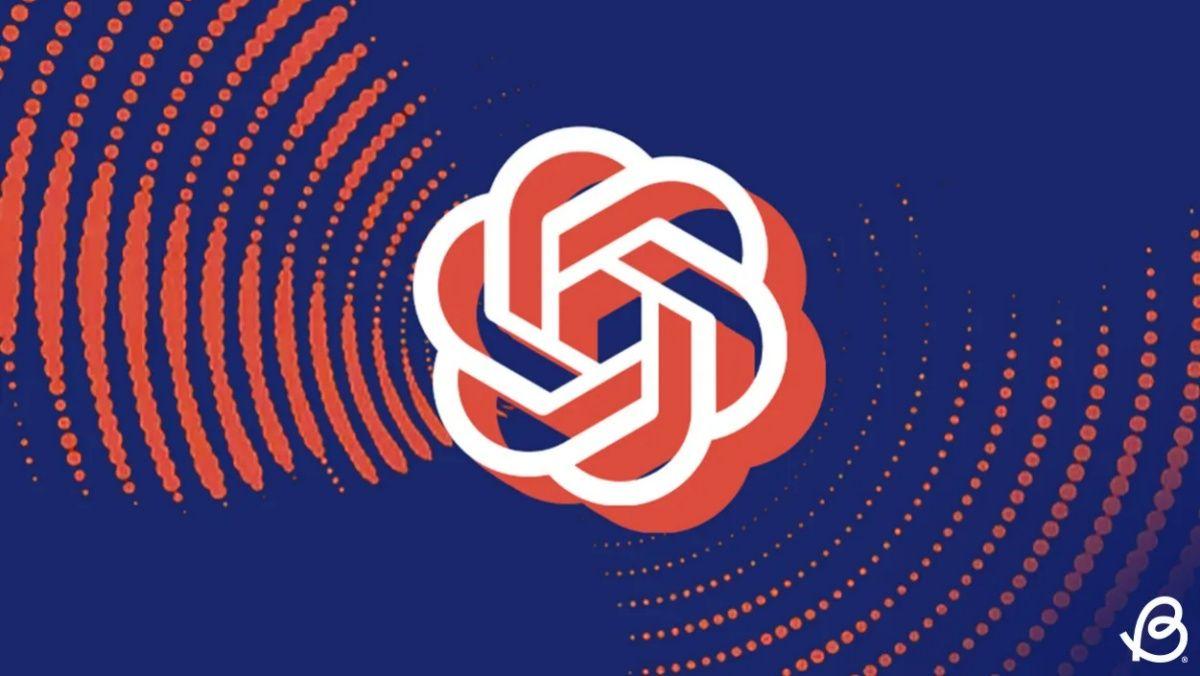
Source: Beebom
Collaboration with Juilliard
In a notable development, OpenAI is reportedly collaborating with students from the prestigious Juilliard School to annotate music scores, which could be used to train the AI model
1
3
. This partnership suggests that OpenAI is prioritizing quality and creative precision in its approach to music generation, rather than focusing solely on quantity.Potential Features and Applications
While details remain scarce, the tool is expected to offer various functionalities, including:
- Generating guitar accompaniment for vocal tracks
- Adding music to videos
- Creating background music tailored to specific moods, tempos, or visuals
2
4
It's unclear whether this tool will be a standalone product or integrated into existing OpenAI offerings like ChatGPT or Sora .
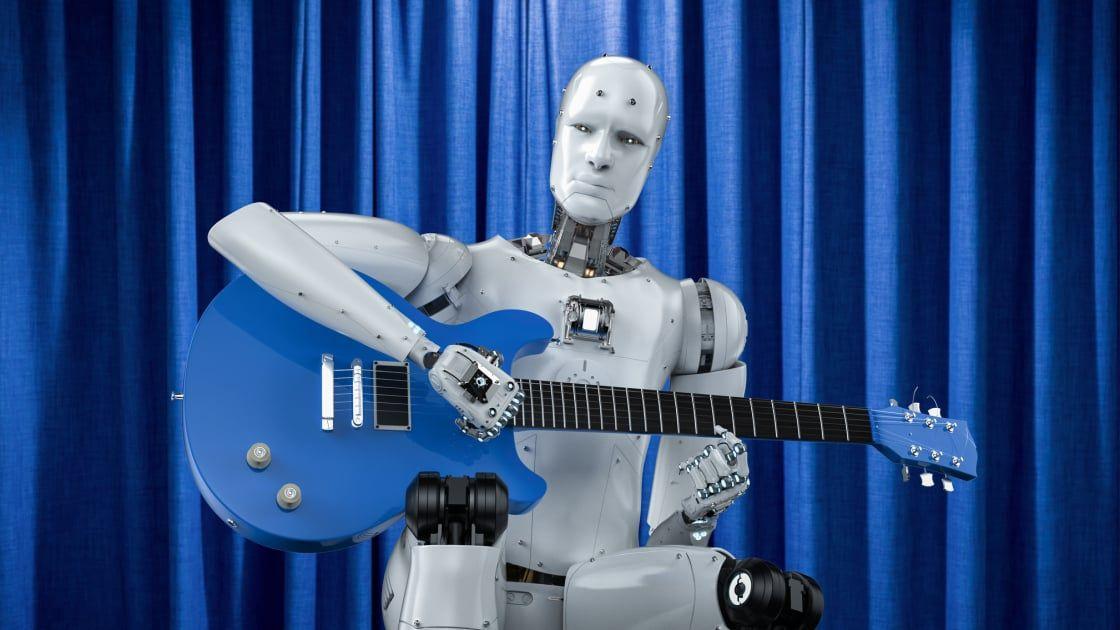
Source: PC Magazine
Industry Impact and Concerns
OpenAI's entry into the AI music generation space could significantly disrupt the industry, potentially rivaling existing platforms like Suno and Udio
4
. However, this move also raises concerns about copyright infringement and the impact on human musicians.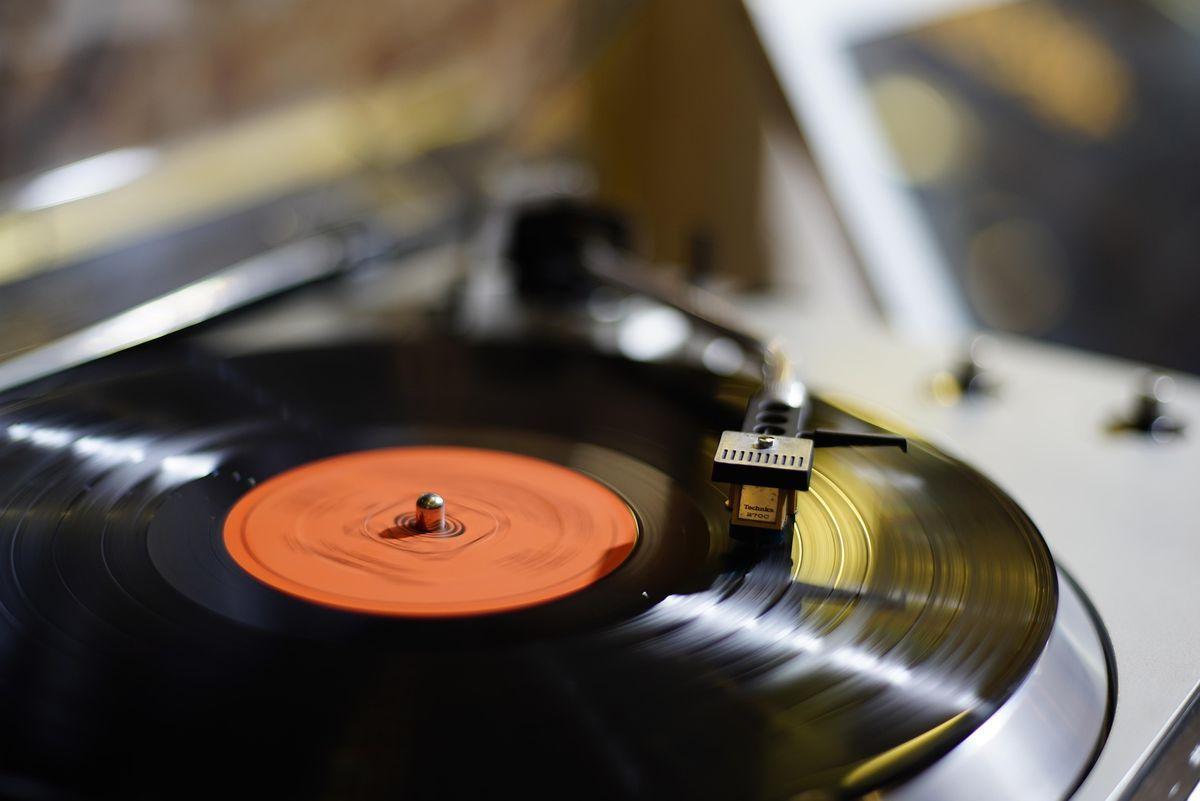
Source: TechRadar
Related Stories
Legal and Ethical Challenges
The music industry has already taken legal action against AI music generation tools. Suno and Udio are currently facing lawsuits from the Record Industry Association of America (RIAA) over alleged copyright infringements . OpenAI's entry into this space could potentially lead to similar legal challenges.
The Future of AI-Generated Music
As AI-generated content continues to flood streaming platforms, questions arise about the future of human-created music and the potential need for new regulations
5
. The development of OpenAI's music generation tool could accelerate these discussions and potentially reshape the creative landscape in the music industry.References
Summarized by
Navi
[3]
[4]
[5]
Related Stories
AI Music Generation Tools Spark Debate and Disruption in the Music Industry
01 Sept 2025•Technology

ElevenLabs Launches AI Music Generator with Commercial Rights, Expanding its AI Audio Portfolio
06 Aug 2025•Technology

Major Labels Embrace AI Music Platforms After Copyright Battles, Raising Artist Concerns
16 Dec 2025•Entertainment and Society
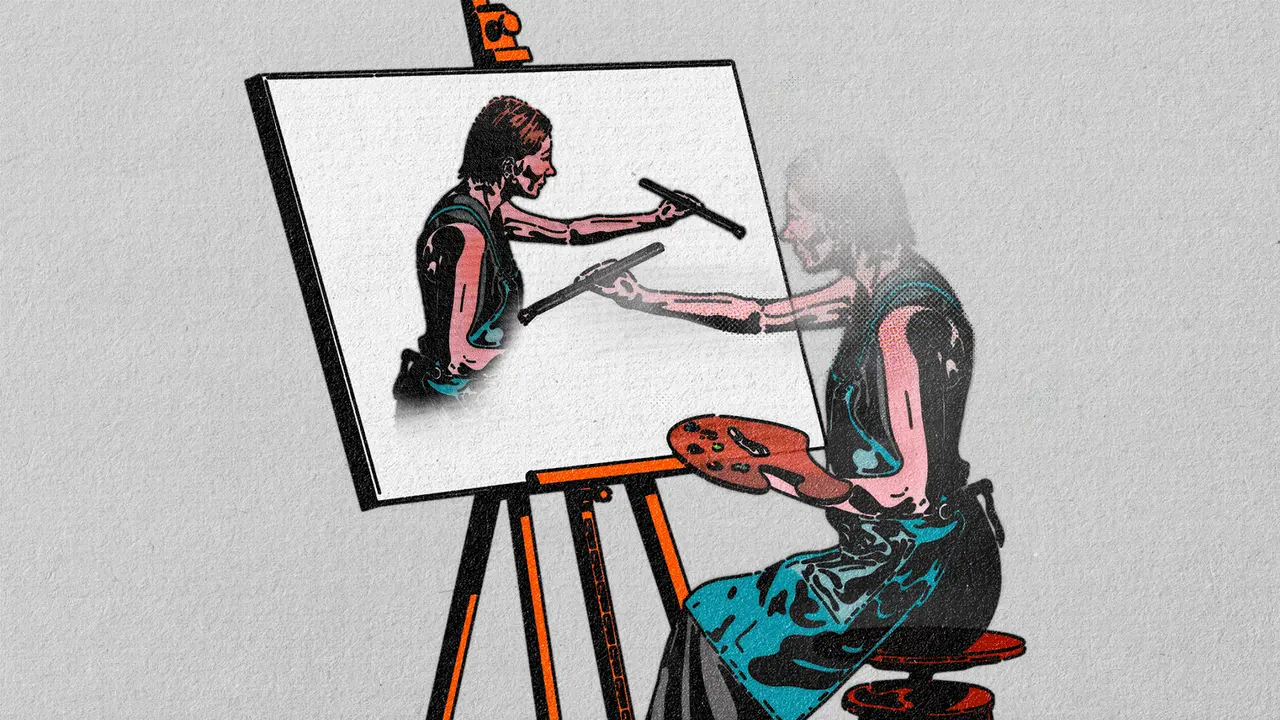
Recent Highlights
1
ByteDance Faces Hollywood Backlash After Seedance 2.0 Creates Unauthorized Celebrity Deepfakes
Technology

2
Microsoft AI chief predicts artificial intelligence will automate most white-collar jobs in 18 months
Business and Economy

3
Google reports state-sponsored hackers exploit Gemini AI across all stages of cyberattacks
Technology





